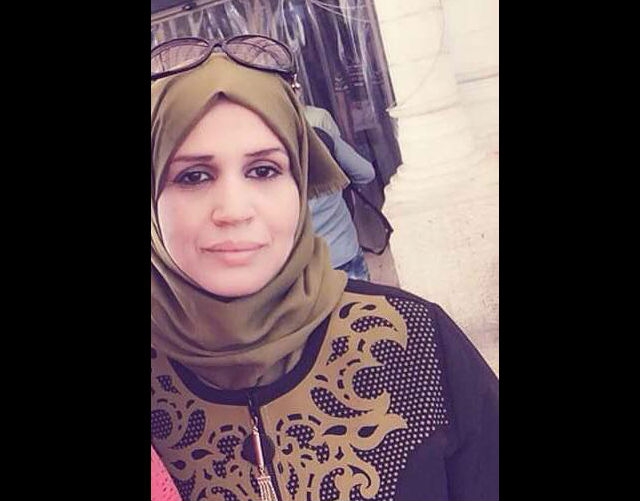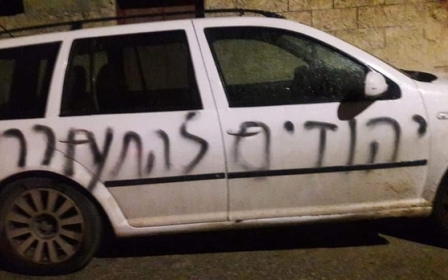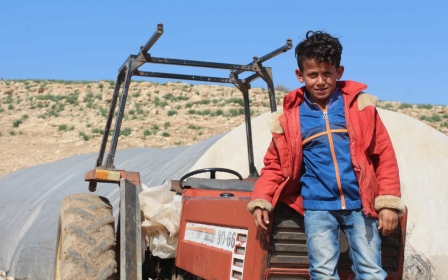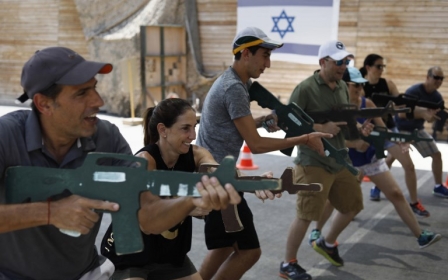Israelis launch funding campaign for settler accused of killing Palestinian woman

Four prominent Israeli rabbis have launched a crowd-funding campaign in support of a settler accused of stoning Palestinian woman Aisha al-Rabi to death as she drove home with her family in the occupied West Bank.
The petition to support the 16-year-old is designed to help him in his "legal and public struggle" against a manslaughter charge which was handed to him by Israeli prosecutors last week.
On 12 October, 47-year-old Rabi, her nine-year-old daughter and husband Yaqoub were travelling in a car on their way home to the Nablus-area village of Biddya, close to the illegal Israeli settlement of Rechalim, when settlers stoned their vehicle.
Rabi sustained a fatal wound as she was struck with a 2kg rock on the right side of her head. She later died in hospital.
According to Israeli daily Haaretz, the rabbis - who command significant support both inside Israel and within the West Bank settlement community - published the name of the accused teen settler in their letter, despite a gag order issued by Israeli police.
The donation campaign was launched by Rabbi Haim Drukman, a former Knesset member and head of a religious preparatory school for the army, Yaakov Ariel, a former chief rabbi of the city of Ramat Gan, near Tel Aviv, Dov Lior, the head of the Council of Rabbis in the West Bank, and Yehoshua Shapira, the chief rabbi of Ramat Gan.
The open letter calls on Israelis to “donate generously” so that "justice can quickly come to light”.
Early in January, five pupils from the nearby Pri Haaretz religious seminary in the Rechalim settlement were arrested over the attack on Rabi. Four were released to house arrest after a few days.
Israel's prosecutor said that they found the DNA of the Israeli suspect on the rock that caused Rabi's death.
The suspect "held a rock weighing close to 2kg, with the intention of using it to harm Arab car passengers, based out of an ideological motive of racism and hostility toward Arabs everywhere," the indictment read, referring to Palestinians as "Arabs", as is common in Israel.
The suspect threw the rock when he noticed a vehicle with a Palestinian license plate, according to the Israeli prosecutor.
Support for the suspect
The rabbis' petition is one of a number of shows of support provided to the suspect in recent months.
After the incident, Israeli Justice Minister Ayelet Shaked spoke over the phone with the mother of one of the Israeli teenagers. She then met with the boys' families on 7 January to hear their concerns.
About 1,000 Israelis, including right-wing politicians and leaders of the settlement movement, protested outside Prime Minister Benjamin Netanyahu's residence in Jerusalem earlier this month in support of the suspects, Israeli Channel 10 reported.
Violence by Jewish settlers and right-wing activists against Palestinians in the occupied West Bank reportedly tripled last year.
Last year, 482 incidents of violence against Palestinians were reported by mid-December, compared to 140 for 2017.
In addition to assaulting Palestinians and throwing stones at them, the most frequent offences consisted of spraying nationalist and anti-Palestinian or anti-Muslim slogans, damaging homes and cars, and cutting down trees belonging to Palestinian farmers.
New MEE newsletter: Jerusalem Dispatch
Sign up to get the latest insights and analysis on Israel-Palestine, alongside Turkey Unpacked and other MEE newsletters
Middle East Eye delivers independent and unrivalled coverage and analysis of the Middle East, North Africa and beyond. To learn more about republishing this content and the associated fees, please fill out this form. More about MEE can be found here.




